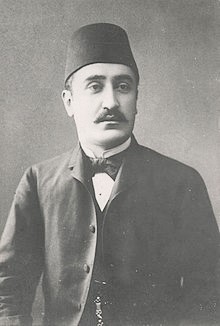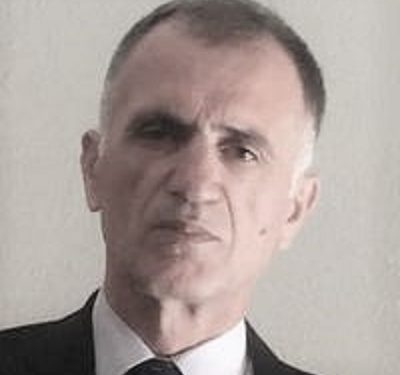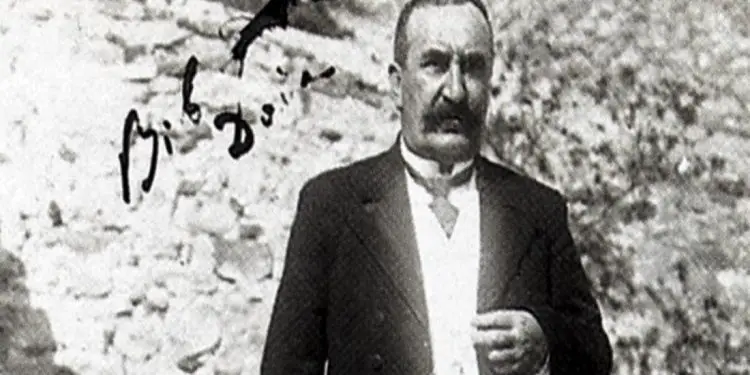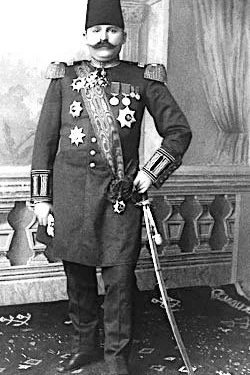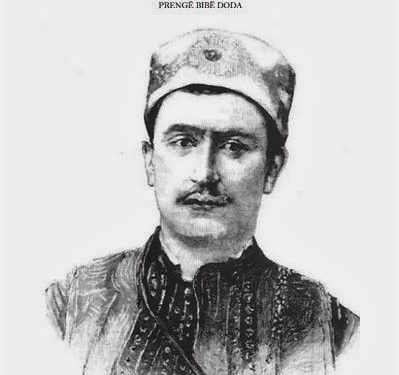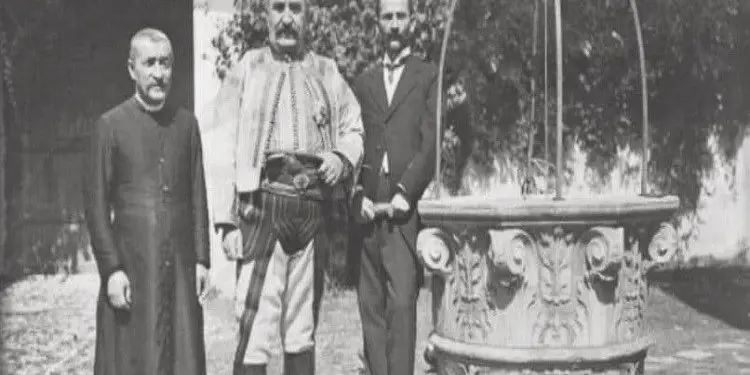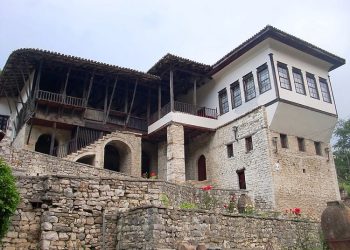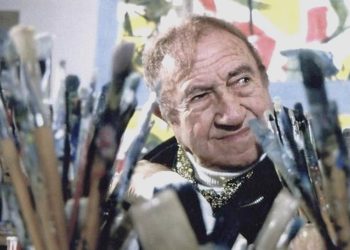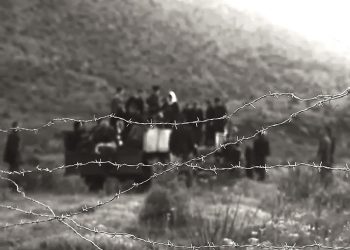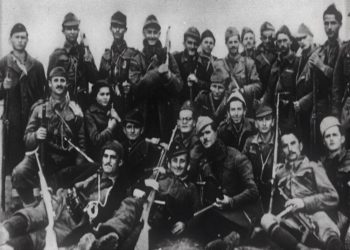By Dr. Nikol Loka
Part eight
“PRENGA BIBE DODA, THE SHADOWS OF A CITIZENSHIP”
Memorie.al / The newest book “Prengë Bibë Doda, a phenomenon in Albanian political life”, by the researcher Nikollë Loka, not only expands the field of historical studies on Mirdita, the Door of Gjonmarkaj and the figure of the Mirdita Prince, Prengë Bibë Doda, but it is also a contribution to national historiography. The very rich archival material, the literature used or consulted, oral traditions, etc., make this book a real study treasure, giving the science of history a scientific monograph that enriches our knowledge of Mirdita, its captains, tradition, history etc. To study such an important and complex figure, as the figure of Prengë Biba Doda, is a high scientific responsibility that not everyone undertakes. Nikollë Loka, has done a great job of research and treatment by the professional researcher, giving us the portrait of the Prince and the general Mirditor, with the true contours. Dr. Loka has adhered to the end of the space and time, in which the multidimensional events and their protagonists have developed.
THE MONOGRAPH “ABOUT BIBË DODA, A PHENOMENON IN ALBANIAN POLITICAL LIFE”, A VALUABLE SCIENTIFIC STUDY THAT ENRICHS THE FUND OF OUR HISTORICAL STUDIES
(By Mr. Sc. Murat Ajvazi, March 2017, Switzerland)
Continues from last issue
- Doda Prenga
Dodë Prenga, the son of Prengë Lleshi, is put in charge of Mirdita after his father’s death. Doda, they praise him for his courage. Hecquard has called it; “the most moderate, humane and intelligent leader that Mirdita had until then”. (121)
Doda first fought in the army of Ali Pasha Tepelena and then, with that of Bushatllinj. When Ali Pasha gathered the Albanian leaders in the assembly, for the war against Turkey, as Pouqueville says, “he was the only one who refused to go against the Sultan”. (122)
According to the commitment, at the head of 2800 mirditas, he went together with the army of Bushatllinj to More. It is said that the famous Marko Boçari was killed in his tent by his uncle, Llesh Lleshi (Black Wool). After returning from Moreja, he leaves for Dibër, because this province had rebelled against the authority of Mustafa Pasha. Conquers Dibra and maintains absolute authority there for thirteen months. Captain Dodë Prenga spent the last days of his life after being poisoned by a Muslim woman from Shkodra and died in Kotorr, where he had gone hoping to find a cure. The poison had been strong and after living a few days, he died there in 1828. A moment was erected on Doda’s grave. (123)
THE FAMILY MISSES BABY DODA
PRINC E CAPIDAN BIBBE DODA PASHA
The childhood
Bibë Doda was born in 1820, in Orosh. He had accompanied his father in the wars against the Russians in 1828-1829. (124)
After the death of Dodë Prengë Lleshi, a fight broke out at the door of Gjonmarkaj, for the inheritance of the rule. Biba, to whom it belonged, was small. In those conditions, Valiu of Shkodra appointed as ruler, Biba’s uncle, Nikollë Prengë Lleshi, who would take care of the government of the country, based on the Canon, until Biba became a man. Bibë Doda retired to Shkodër for some time, and when he reached a certain age, Pasha wanted to give him a Turkish bylykbash, with whom he would share power and March together, at the head of the army. Chief Gjonmarkaj pretended to accept it and, after informing his people, left for Orosh, together with a certain Jusuf Abdyllah Beu, appointed to the new position.
Upon receiving this news, the people of Mirdita all got up, took their weapons and marched towards the gorge of Krestha, from where you enter the mountains of Mirdita. When the young Bylykbashi arrived there, they told Kapidan that; they would not accept him together with Yusuf Bey and would kill the latter, if he would only take one step forward. Jusuf Bey, returned to Shkodër. Together with the possessions that accompanied it.
Following this event, the Mirditas gathered in the assembly and decided never to accept any Bylykbash, since until then, the Captain had been enough for them as the leader of the country. Since then, with the exception of an envoy of the High Porte, accompanied by the consuls of France and England, no Turkish official has ever set foot in their mountains. (125)
In September 1839, the population of Prizren expelled the governor Ismet Pasha. Valiu of Rumelia gave the order to the Captain of Mirdita, to occupy the city of Prizren with his Mirditas, at the expense of Istanbul. The captain did not accept, and since the Governor did not have enough forces, the government withdrew and did not punish the province of Prizren and partially met the demands of the population. (126) In 1844, when Lower Albania was subdued, Bibë Doda was summoned by Serasqeri Reshid Pasha and, at the head of the Mirditas, whom Serasqeri had chosen as his guards, carried out the Epirus campaign. Bibë Doda with his own forces, fought against the insurgents led by Rrapo Hekali and Zenel Gjoleka. (127)
Later, even General Omer Pasha, who had called him to fight against Montenegro, would notice the courage and coolness of Biba Doda, as he covered the retreat of a part of the Turkish army, defeating the Montenegrins and protecting the Kelmendas from a complete destruction. Captain Bibë Doda took part in suppressing the uprising in Tetovo and Skopje, where an Albanian army of about 10 thousand people had gathered. Bibë Doda, performed great services to Serasqer, who gave him a cord of honor and a pair of turbans. In 1849, the privileges of Mirdita and Biba Doda were re-recognized, the title “Pasha” was given to him, on the condition that he participated in the war with an irregular army, up to 10 thousand warriors. (128)
Although he was ready to fight for the Turks, Biba, after 1849, established contacts with representatives of the Serbian and Montenegrin principalities, with who, through the Abbot, Gaspë Krasniqi, concluded an agreement for the coordination of insurgent actions against the Ottoman army in the Balkans. (129) simultaneously, he maintained contacts with representatives of France, Austria-Hungary and the Vatican. Through Montenegro, he had also established connections with representatives of tsarist Russia. However, Bibë Doda always responded to calls for the frequent military campaigns undertaken by the High Gate in those years.
In 1852, in the war against Montenegro, alongside the Ottoman armies commanded by Omer Pasha, there were also 2 thousand forces under the command of Biba Doda. Mirdita’s forces took the arms of the Montenegrins and protected the back of the retreating Turkish armies. But, without recovering from the defeat with Montenegro, Turkey, in alliance with England and France, found itself facing the Russians. Of the Albanian leaders, the Sultan’s call for war was answered only by Bibë Doda, who, on November 20, 1853, called the leaders to an assembly in Shpal and asked them to gather forces, which in this war were calculated at 10 thousand him. (130)
At the beginning of 1854, Biba Doda’s encampments arrived on the banks of the Danube and lined up alongside the forces of Omer Pasha, who was leading the fighting on that front. The Turkish Pasha instructed Biba Doda to move his forces to the other side of the Danube. When the war was in favor of the Russians, only the bravery and courage of Mirdita’s forces ensured victory for the Ottoman army. (131)
When Seit Bey i Mati rose to power in the years 1859-1860, the Turkish army that went to suppress the rebellion was also helped by the Albanian pashalars, including Bibë Doda. Seit Bey, who was exiled in Tunis and in 1863, was forgiven and returned to duty as Mydyr, in Lis.
An indicator of Biba Doda’s power is the fact that he had as his secretary some of the prominent Albanian intellectuals of the time. During his stay in Istanbul, he had a secretary, Pashko Vasan, a prominent personality of the National Renaissance, who later became “Pasha” and Governor of Lebanon. When he stayed in Istanbul, from June 25, 1856, until July 23, 1857, Bibë Doda gave Pashko Vasa, in addition to his salary, 13,000 grossh as a reward. He had given the same salary to the other secretaries: Gjon Melgushi and Loro Gurakuqi. (132)
When in the Dukagjin Plain, the pressures started on the Catholics, for their return to Muslims, otherwise they would have to leave the country, (133) to help the Catholics in the morning, the Bajraktari of Gashi, Bajram Aga, came out. (134)
On November 9, 1866, Bibë Dodë Pasha went to Prizren, but the Governor of Prizren, Nazif Pasha, wanted to ignore his arrival, but with the intervention of the French Consul, Nazif Pasha, he was forced to organize an official reception. (135)
The Head himself, Doda, stayed in Prizren, but had sent Kapidan Marku to see the situation in the villages of Gjakova, (136) where there had been riots. On December 8, 1866, the French Consul in Prizren, Krajevski, informed that; “Bibi Doda is still in Prizren”. (137)
Biba Doda’s name became known in important European offices. The prince had asked the Consul of France in Shkodër to convey to Emperor Napoleon III his desire to become the godmother for the christening of his only son. The Emperor of France also accepted that this family event would become a source of concern for the Ottoman authorities in Shkodër, who devised a plan to prevent the relationship of this godmother, which would have direct consequences in the relations that Mirdita would have with France.
A visit to the Princely Palace in Orosh
Henry Fanshave Tozer, who had visited Prince Biba in Orosh, portrays him and gives us a complete portrait of him: Biba Doda was a powerful man, about forty, with well-defined features and an unintelligent countenance. Those who have stood by him, say that; “fear for him was unknown”.
The prince had distinguished himself in several campaigns, where he had fought alongside the Turkish forces. He was wearing the Pasha’s military costume and for that, he is little appreciated in his country.
“It may seem a little barbaric to you”, Mr. Finzi told me, it is true that the Prince does not know how to write or read and does not speak any other language, except that he understands Italian. (138)
Dom Nikollë Bardhi, had been the chaplain of the forces of Mirdita, under the leadership of Biba Doda in Bulgaria, at the beginning of the war with the Russians, when he led 1200 men to help the Sultan. Unlike other Albanians, Mirditas never serve as mercenaries. Biba was present at the battle of Giurgevo and Silistria, where he remembered the heroic captain, Butler. For these services, he had received the “Mejidije” order, class III, which he showed us together with the Sultan’s firman, written in gilded letters, and he expressed his annoyance that he had not received an English medal in the war Crimea, when he knew others who had taken him. Bibi Doda was worshiped by the priest who called her; lord man (139)
Regarding the Prince’s Palaces in Orosh, Tozer states: “The palace, or residence of Orosh, was ideal for a mountain chief. The building itself and the people who lived in it took us away with thoughts to the wild times of the Middle Ages. The walls are made of stone, wide and with designated places for protection. The entire structure formed an irregular extension, at the end of which, the Prince and his family lived. In this part, we did not enter. For women, it was a separate part, like in a Turkish harem. The other part, on the first floor, had stables, while the stone stairs led to a large room, which occupies part of the upper floor. (140)
Prince Bibë Doda had land in Orosh and Kallmet, as well as property in Shkodër, Lezhë, Kallmet and Orosh. But his main source was livestock, with a large number of heads, about 800 cattle, 1,300 small cattle and a number of horses. On the occasion of an assembly held in Saraje, three oxen, some small cattle were slaughtered and a great feast was held. This hospitality always happens in Saraje, even when the Prince is in Shkodër. Bibë Doda, keeps her house open for friends who come to her and in Saraje, she is waited on by a small cattle, for every day.
As we were among the few Europeans who had visited Oroshi, we were warmly welcomed. We were conducted into the dining-room, where the Prince himself received us, to bid us welcome, which he did with expressions of the greatest hospitality and pleasure. He apologized that he could not dine with us, as it was a holiday, and as soon as he left us, he sent his adjutant, Ali Beu, a Hungarian, a Muslim convert, and his secretary, Dr. Teodor Finzi, an Italian, to take care of us. As in Montenegro, here too we were lucky enough to meet educated people who could give us the information we were looking for. Both these gentlemen spoke Italian; Teodor Finzi also French. That day, Dom Gjergji, the priest of a nearby village, who had come to visit, also took part in the meeting.
At 10 o’clock the next day, we had breakfast with the Prince, the Adjutant, the Secretary and Dom Gjergji. Eating breakfast, there was a martial arts show. As friends, we did not expect that the food would be served by warriors with a noticeable face, one of whom was from the Kapidans, with a belt full of pistols and knives. A German, he was the chief of servants of Saraj. So that room contained a curious mixture of nations: Italian, Hungarian, German, English and Albanian. The oldest among us was asked to take a seat next to the Prince. (141)
The princely palace in Shkodër
Hecquardi, writes that; “The leader of the Mirditors, has built for himself a large saraj of the type of Turkish houses in Shkodra, furnished only with a long table, an armchair and a few wooden benches. They say that the part where the women hang out is somewhat more comfortable, so there are carpets and some sofas. In front of the barns, there are two large iron balls, without beds, which are put to work on festive days, or when the Captain arrives or leaves, or some Christian consul. (142)
The Mirdita Uprising of 1862
The Mirditas were connected to the High Gate, through an agreement, according to which both parties had rights and obligations. As long as these rights and obligations were respected, there was order and peace in Mirdita, and the Mirditas responded to the High Gate with a contingent of soldiers. But, in truth, all along, the two sides were not sincere allies. The Ottoman authorities did not leave an opportunity unexploited to promote the division and weakening of the Mirdita factor, and, on the other hand, the Capidans, did not leave an opportunity unexploited, to connect with the enemies of the Empire, to protect autonomy, realize the projects of autonomists, who sometimes went as far as complete independence.
In the framework of the nationalist movements that broke out in Europe, Albanian intellectuals looked at the possibility of organizing an uprising, following the example of the Italian revolution. It was thought to create a free zone, which would serve as the core of the future Albanian state, as Piedmont had served for Italy. Mirdita had to perform this role, considering that it was a self-governing province, where the idea of freedom had survived several centuries after the Ottoman occupation.
The Mirditas had formed a sense of identity and distinguished themselves from the invaders, who hated them; they were not satisfied with the status they had in the Empire and under the example of the small principality of Montenegro, they wanted to live independently. Their economic situation was very difficult. Since they had different religious affiliations from the conqueror, they had no spiritual connection with him. The Catholic clergy had influenced the cultivation of national consciousness and hatred towards the Turks. For all these reasons, the Mirdites were ready to fight.
The preparations for the Mirdita uprising were made under the guidance of a group of intellectuals, such as; Zef Jubani, Pashko Vasa, Gaspë Krasniqi, Pal Dodmasej, etc. According to the opinion of these intellectuals, the Captain of Mirdita, Bibë Doda, should raise the flag of the uprising and declare in Mirdita, an Autonomous or independent Principality, around which the other Albanian provinces would then unite. Initially, Bibë Doda agreed to lead the uprising and participated in its organization, but then withdrew from the project for war, since the promised aid from Italy had not arrived.
However, the Mirditas, impatient to fight against the Turks, did not obey Kapidan and, contrary to their tradition, continued the war under the leadership of Abbot Krasniqi, who removed the priest’s veladon and stole the rifle. Despite the fact that it failed, the Mirdita uprising of 1862-1863 is important in the nationwide plan, since for the first time, a project was drawn up for an autonomous, or independent, principality as the core of the future Albanian state. This new political approach, in relations with the Ottomans, was not successful because of the Austro-Hungarian influence that was engaged in maintaining the status quo. (143)
The poisoning of Bibi Doda
In those days, the pashalars of Shkodra, on a festive occasion, organized a feast where Biba Doda was also invited. After the feast, the captain felt pain in his chest. At first, the doctors did not give any importance, thinking that there were disorders in the digestion of food, but then, they declared him sick with dropsy. Within three weeks, all of Biba Doda’s companions died. When he was on his deathbed, the Prince called the Consul of France and said: “Here is my son, here is my money. If I believe you. Everything that belongs to me is in your guard…”! Bibë Doda, died on July 28, 1868. (144)
Here is what Dom Ndoc Nikaj writes: “At his funeral, the consuls of France, Austria, Russia and Italy participated. The soulful service was performed by the Catholic Archbishop, Monsignor Poten. The commemorative procession, with the lifeless body of Biba Dodë Pasha, was led by two pashalars, and then came the priest and the priests, who said the prayers of the soul, followed by the parish priest. Further back, came the Archbishop of Shkodra, with two priests. After them came the coffin of the dead, held by the hands of Mirdita’s sons. After the coffin, Mirdita’s captains came first, all in black turbans, with hats hanging down in front, and with long rifles under their arms, with muzzles.
Next in line came Biba Doda’s horse, a beautiful, white and angry horse. After him, came the majority of the people of Mirdita and Shkodra, first the little ones, Mohammedans and Christians. The whole solemn procession was surrounded by two rows of soldiers, who had their weapons on their sides with muzzles. So escorted in a grand way, he was taken to the tomb and after the priest blessed him, he entered the tomb. At that moment, when his body was lowered towards the pit, the army fired a battery of rifles, for the last greeting of a ruling Pasha, of a most important province in all of Albania”. (145)
And below it continues: “After the burial of Biba Doda, his personal enemies, who had no strength to face him, went at night and opened his grave and took his royal clothes. It was not the intention of theft, but they had an honor, which they wanted to live after death. As soon as such a note was heard, the Consul of France ran to the country’s Pasha and telegraphed the news to the French Ambassador in Istanbul and the French Foreign Minister. So did the Consul of Austria. Both pashalars of Shkodra went to the cemetery and gave strong orders to find out the culprits. He was ordered from Istanbul to rebury Biba Doda, with great honors, and build a monument grave, where it was written in Latin:
“Biba Doda Oroshas, for bravery, justice and religion in the first place. Salutations to the Head of the Prince who grew in greatness, who with the crowds in Kosovo, in Pristina, in Prizren, in Montenegro and other places, together with the highest royal powers, pressed the enemies where he crossed the river Ister (Danube), in the war of the Russians, brought the armies of Panjehne”.
He lived 48 years. Born in Shkodër on July 18, 1868. Rest in peace! (146)
To end this ugly event, the foreign consuls in Shkodra mediated to avoid fratricide, which could break out between Mirdita and Shkodra”. (147)
The government of France gave the family of Prince Bibë Doda an annual pension and always protected him in all the turbulent situations that this family went through. The French policy towards Mirdita was not simply conditioned by the protection of her interests, but also by the obligation to protect the family of Biba Doda. The advice of the consuls of France greatly influenced the political behavior of Prenga. He and his family, in difficult times, saw this country as their natural ally. Memorie.al
The next issue follows
- Hyacinthe Hecquart, History and description of Upper Albania or Gegëria,…. p. 224
- Zef Marka Harapi, Mirdita in the history of Gojdhana until 1929, Hylli i Drita, year VII, No. 3, p. 162
- AQSH, Bibë Doda Fund, File 16, .4
- Jean Claude Faverial, Historia (oldest) of Albania, p.443
- Henry Fanshave Tozer, Researches in Highlands of Turkey 2004, p.227-228
- Kahreman Ulqini, Structure of traditional Albanian society, …p.24.
- Hecynthe Hecquard, History and description of Upper Albania or Gegëria,…. p. 243-245.
- AQSH, Bibë Doda Fund, History of Albania, Vol.II, Tirana 1965, p.63
- Zef Marka Harapi, Mirdita in history and gojdhana until 1929, Hylli i Drita, No. 4, year VII, 1931, p. 229
- Zef Marka Harapi, Mirdita in history and gojdhana until 1929, Hylli i Drita, No. 4, year VII, 1931, p. 229
- Zef Marka Harapi, Mirdita in history and gojdhana until 1929, Hylli i Drita, No. 4, year VII, 1931, p. 233
- AQSH, Bibë Doda Fund, file 8, doc. No. 1 and 2
- Correspondence of the French and German consuls on the Albanian issue during the years 1860-1870, edited by Ismail Ismaili, State Agency of Kosovo Archives, Pristina 2011, p. 65.
- Correspondence of the French and German consuls on the Albanian issue during the years 1860-1870…, p. 62.
- Correspondence of the French and German consuls on the Albanian issue during the years 1860-1870,…, p.58.
- Correspondence of the French and German consuls on the Albanian issue during the years 1860-1870, … p.81
- Prizren, September 19, 1870, Letter from the Consul to his Excellency, Count F. de Beust, intimate adviser, Cambellan, Minister of the Royal Household and Foreign Affairs Vienna
- Henry Fanshave Tozer, Researches in Highlands of Turkey,… p.302-306
- Henry Fanshave Tozer, Researches in the Highlands of Turkey…, p. 295
- Henry Fanshave Tozer, Researches in the Highlands of Turkey,… p. 300
- Henry Fanshave Tozer, Researches in the Highlands of Turkey…, p. 301-310
- Hecynthe Hecquard, History and description of Upper Albania or Gegëria,…, p. 210
- Nikollë Loka, Assembly of Fan and the impossibility of the Albanian Piedmont, “Ihpvk” publications, Tirana, 2011, p. 49-52
- Jean-Claude Faverial, Historia (oldest) of Albania, p.440
- Dom Ndoc NIkaj, Memories of a life…, p.18-19
- Zef Marka Harapi, Mirdita in history and gojdhana until 1929, Hylli i Drita, year 1931, year VII, No. 4, p. 232-233




